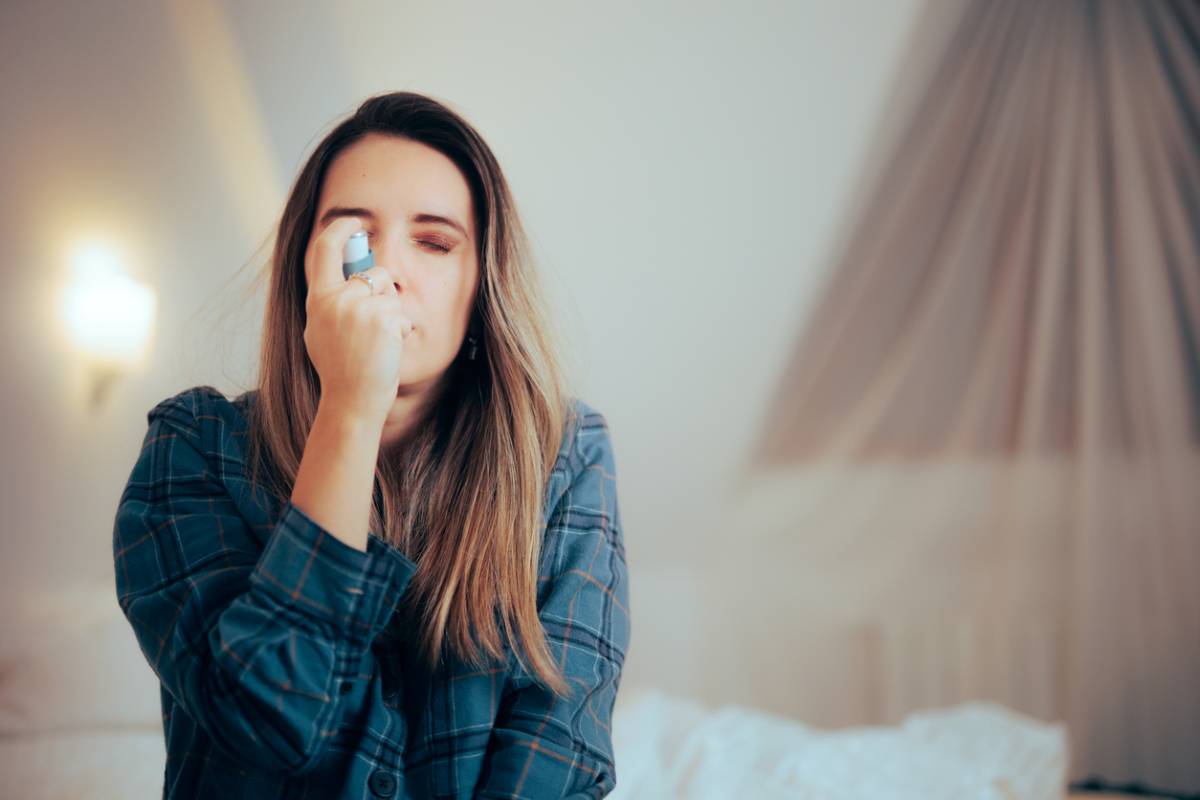Asthma can impact your daily life in a number of ways. However, it can also impact you at night. Nighttime asthma attacks can be really scary and a dangerous experience if you don’t have a plan in place when the issue arises. While asthma attacks are often associated with the daytime and during intense physical activity, research shows that a significant proportion of individuals with asthma experience worsening symptoms during the night. It is even estimated that up to 75% of asthma-related deaths occur at night. This occurs for a variety of reasons, including natural variations in your lung function, airway inflammation, exposure to allergens, or exposure to triggers. Below you will find the top 7 tips to reduce nighttime asthma attacks.
7 Tips to Reduce Nighttime Asthma Attacks
Understanding the challenges and triggers associated with nighttime asthma attacks is critical in developing an effective management plan. Consider the following top tips to reduce your nighttime asthma attacks and ensure a better quality of life.
Clean Your Bedroom:
It’s important to clean your room regularly. This can depend on a few factors, but aim for at least once a week. Maintaining a clean and dust-free bedroom is crucial in reducing nighttime asthma attacks. This is because dust mites, pet dander, and other allergens can easily accumulate in your bedroom. To reduce the risk of triggering your asthma symptoms, be sure to vacuum regularly, sweep the floors, wipe down hard surfaces.
Wash Your Bedding:
Add washing your bedding to your cleaning list. Do this on the same day you clean your room so you can easily multi-task and get it done faster. Wash your bedding in hot water to kill dust mites and remove allergens. Dry them on hot as well to ensure optimal cleaning. Depending on the severity and frequency of your nighttime asthma attacks, consider using hypoallergenic pillows and bedding. Another great way to reduce allergens is to invest in a dust-proof mattress and pillow protectors. These can effectively keep dust mites out of your pillows and mattress. You should also avoid keeping stuffed animals or excess pillows on your bed.
No Pets:
To reduce the risk of nighttime asthma attacks, avoid sleeping with your pets. Pet dander is a potent allergen and can easily trigger asthma symptoms, especially among those who have a history of nighttime asthma attacks. However, even those who aren’t allergic to pets should still avoid sleeping with animals. This is because they can still bring in other potential asthma triggers.
Proper Ventilation:
Good air circulation in your bedroom can help reduce asthma triggers when you sleep. Use an air purifier or open windows to improve ventilation and minimize the presence of allergens and irritants in the air. However, be sure to check your local air quality and allergen information. Keep your windows closed on nights when the air quality is bad. An air humidifier can be helpful, but work with a kids asthma specialist near you to ensure it is right for you.
Healthy Sleep Routine:
Establishing a consistent bedtime routine is vital for reducing nighttime asthma attacks. Adequate rest helps manage asthma symptoms effectively. Find what’s right for you as there are a number of strategies, including deep breathing or meditation, listening to calming music, and even stretching or yoga. This can both reduce stress and improve respiratory function.
Take Your Prescribed Medication:
Having an effective asthma management plan can help reduce your risk for an attack. This includes taking your prescribed medication. Adhering to the recommended dosage and frequency helps control inflammation, keep airways open, and prevent unwanted symptoms.
Consult With A Specialist:
Regularly reviewing your asthma action plan with your pediatric pulmonologist near you in Oceanside is important. Consulting with them is essential for personalized guidance in reducing nighttime asthma attacks. They can update your asthma action plan, provide advice on trigger management, adjust medications, and monitor your progress.

